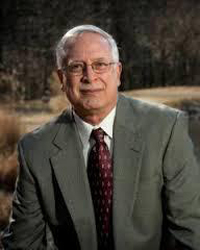 By Paul Driessen
By Paul Driessen
June 19, 2019
Gavin Schmidt’s spat with Steve Koonin underscores why we need to debate climate change
Various scientists, politicians and activists have long insisted that the United States and world must end fossil fuel use to prevent dangerous manmade global warming, climate change and extreme weather disasters. They say “the science is settled” and the time to act is now.
Many other experts have pointed out that these dire threats are the product of hypotheses and computer models that are largely contradicted by actual observations and historic records for temperatures, tornadoes, hurricanes, floods, droughts, Arctic and Antarctic ice fluctuations, and rates of sea level rise. They note that Earth and humanity have been through Pleistocene ice ages and a Little Ice Age, Roman and medieval warm periods, prolonged droughts and other events that greenhouse gas theory cannot explain – and so far will not try to explain.
Call these experts “manmade climate crisis skeptics.” They say no drastic measures on energy should be taken unless and until these contradictions are fully addressed by open, robust discussions that climate crisis advocates refuse to have. “If your evidence for a crisis is so solid,” the skeptics argue, “you should be happy to lay it on the table, subject it to scrutiny, question our experts, and let us question your experts – rigorously.”
No debate, no proof of a manmade crisis – then no taxing, shackling or eliminating fossil fuel use.
The impasse has led to calls for a Red Team exercise or Presidential Committee on Climate Science to review and evaluate the climate models, reports, and evidence for and against the hypothesis that human carbon dioxide and methane emissions are responsible for a seemingly endless list of temperature, weather, ice, plant and animal conditions, fluctuations and catastrophes in recent decades.
Steven Koonin is a physicist, New York University’s professor, director of NYU’s Center for Urban Science and Progress, and former Obama Undersecretary for Science at the US Department of Energy. A true scientist who is committed to the scientific method (proving hypotheses with actual evidence and reproducible experiments), he originated the idea of conducting a Red Team exercise.
Dr. Koonin recently gave a videotaped talk at Purdue University on the need for that exercise. He acknowledged that a lot of the government reports on climate issues are correct or accurate. However, he also said he wouldn’t be urging a Red Team exercise if he didn’t think the reports contain “misleading crucial aspects.” Some reports, he suggested, seem to be “written more to persuade than to inform.”
Based on his “thirty years’ experience in providing advice to policy makers about science,” he observed, “that’s not where we want to be. It’s OK to write an advocacy document, but not one bearing the mantle of science. I believe the reports have that problem.”
His Purdue talk focused on “the disconnect between what the reports actually say and the public/political dialog.” A Red Team exercise, on the other hand, would “point out exactly how the reports promote that disconnect” – by failing to provide historical or quantitative context, for example, or ignoring economic impacts of constraining fossil fuel use. His observations make eminent sense.
Gavin Schmidt took issue with Koonin’s comments – and weighed in with a critique on the RealClimate climate crisis website that he launched and manages. Dr. Schmidt is a British climatologist, climate modeler, Director of the NASA Goddard Institute for Space Studies (GISS) in New York, and supporter of manmade climate crisis ideas.
Dr. Koonin has now responded to Dr. Schmidt – in a fascinating point-by-point rebuttal posted on WattsUpWithThat.com, the internet’s most visited “climate skeptic” website.
Anyone interested in this vitally important debate – over climate change, fossil fuels, a Red Team exercise, and the future of industrialized society and modern living standards – should read and ponder Koonin’s response … and the hundreds of comments that follow.
These government reports – or at least their executive summaries – are being read, interpreted or misinterpreted, and used by journalists, activists, regulators, educators and politicians to drive the dominant (and dominating) climate chaos narrative … and justify a drastic overhaul of our energy sector, economy, manufacturing base, living standards, and rights to make our own personal choices about what cars we can drive and how far, whether we can fly for business or pleasure, what kinds of homes we can live in and where, what kinds of food we can eat, and numerous other fundamental issues.
One additional fundamental issue, of course, is that China, India and other rapidly growing economies are building fossil fuel power plants, factories and vehicles at a furious pace – and have no intention of slowing, much less stopping or reversing, their programs. As a result, their CO2 emissions now dwarf US emissions and in fact now total almost 62% of global emissions. So even total elimination of US fossil fuel use and carbon dioxide emissions would have zero effect on atmospheric CO2 levels.
With that much at stake, we darned well better have solid, evidence-based science to support claims that we face … or are already in the midst of … an unprecedented climate cataclysm, of our own making, that threatens civilization, wildlife and planet. So far, all we have are fear-inducing computer models, headlines, highly questionable reports from US, EU and UN government agencies, unbending assertions that the science is settled, steadfast refusals to debate any of this – and nothing else.
The NYU professor begins his rebuttal by saying he is “grateful for [Schmidt’s] attention and comments, as I’m always trying to improve my presentations. It seems that I failed to get my points across in some crucial places, so I’ve got work to do.” But he will not let Schmidt’s unwarranted criticism go unchallenged.
As Dr. Koonin points out, his Purdue discussions of “modeling challenges and deficiencies, temperature extremes, sea level rise, hurricanes, economic impacts, and the challenge of effective mitigation were all based upon what’s in the reports themselves, the refereed literature, or widely acknowledged data. So I’m not surprised that [Schmidt] ‘sees absolutely nothing new here.’ However, much of my [student] audience was wide-eyed and, I hope, inspired to investigate further on their own.”
Dr. Schmidt apparently does not agree – and yet tarnishes his rebuttal with nitpicking criticisms and by frequently misquoting or misinterpreting Dr. Koonin’s remarks at Purdue, sometimes with an abundance of snark and, one gets the impression, at other times with intention or even malice aforethought, to make Koonin look bad.
Koonin concludes with the spot-on observation that many of the reports “continue to paint a demonstrably deficient picture of the science [of climate change]. The scientific community needs to fix that, both to better inform the decision makers and also to bolster the integrity of the people and institutions that produce the reports. A Red Team exercise would go a long way toward that end.”
President Trump needs to launch that exercise, via a Climate Change Committee or similar program. If he fails to do so, it will be only a matter of time before our country and lives are shackled by intrusive, intolerant, economically and environmentally destructive Green New Deal regimes.
Read the Koonin commentary, watch the video, and read the comments (such as Tom Abbott, June 17, at 7:00 pm and Geoff Sherrington at 5:18 pm). You’ll learn a lot – more than alarmists want you to know.
Paul Driessen is senior policy advisor for the Committee For A Constructive Tomorrow (www.CFACT.org) and author of many articles and books on energy, climate, environmental and human rights issues.

